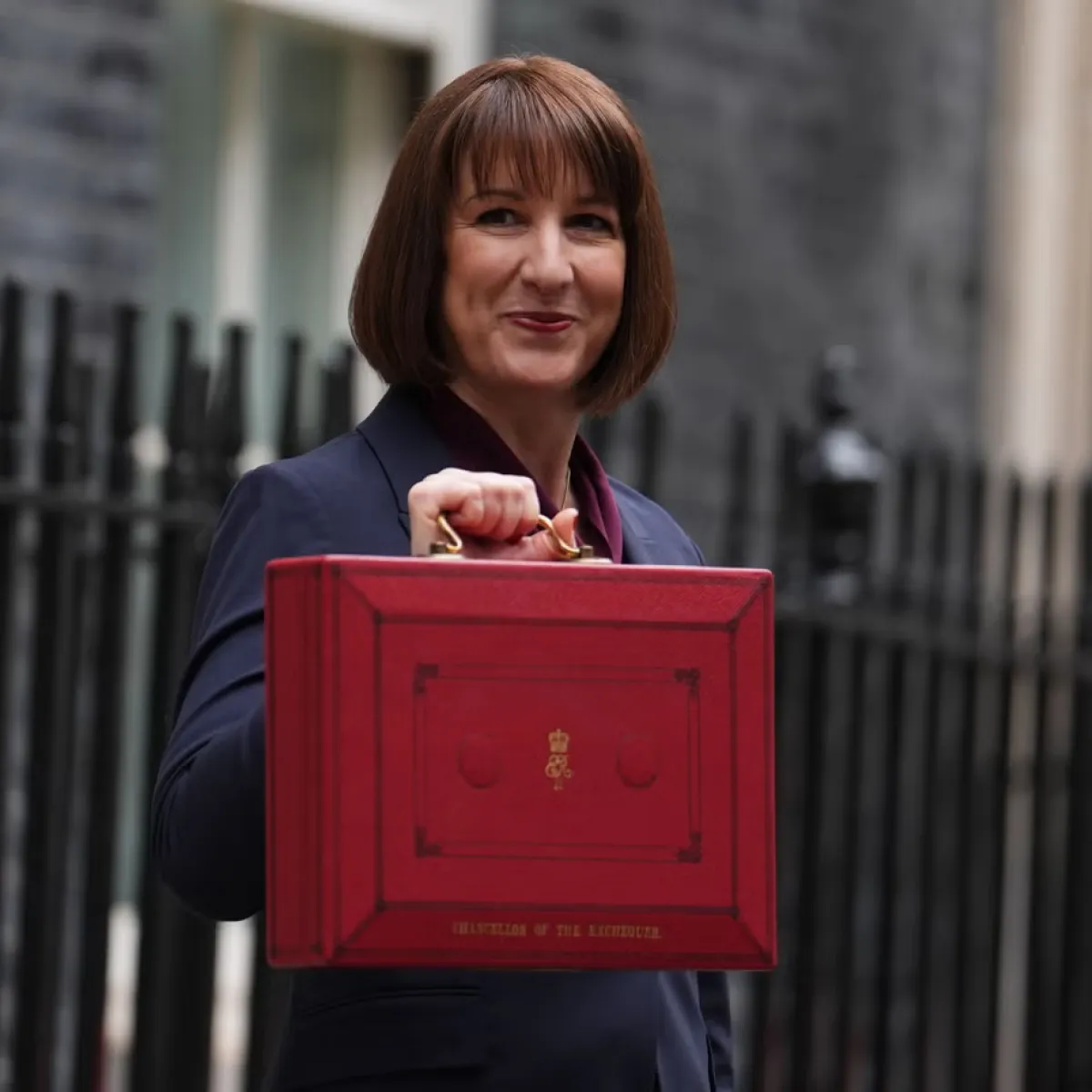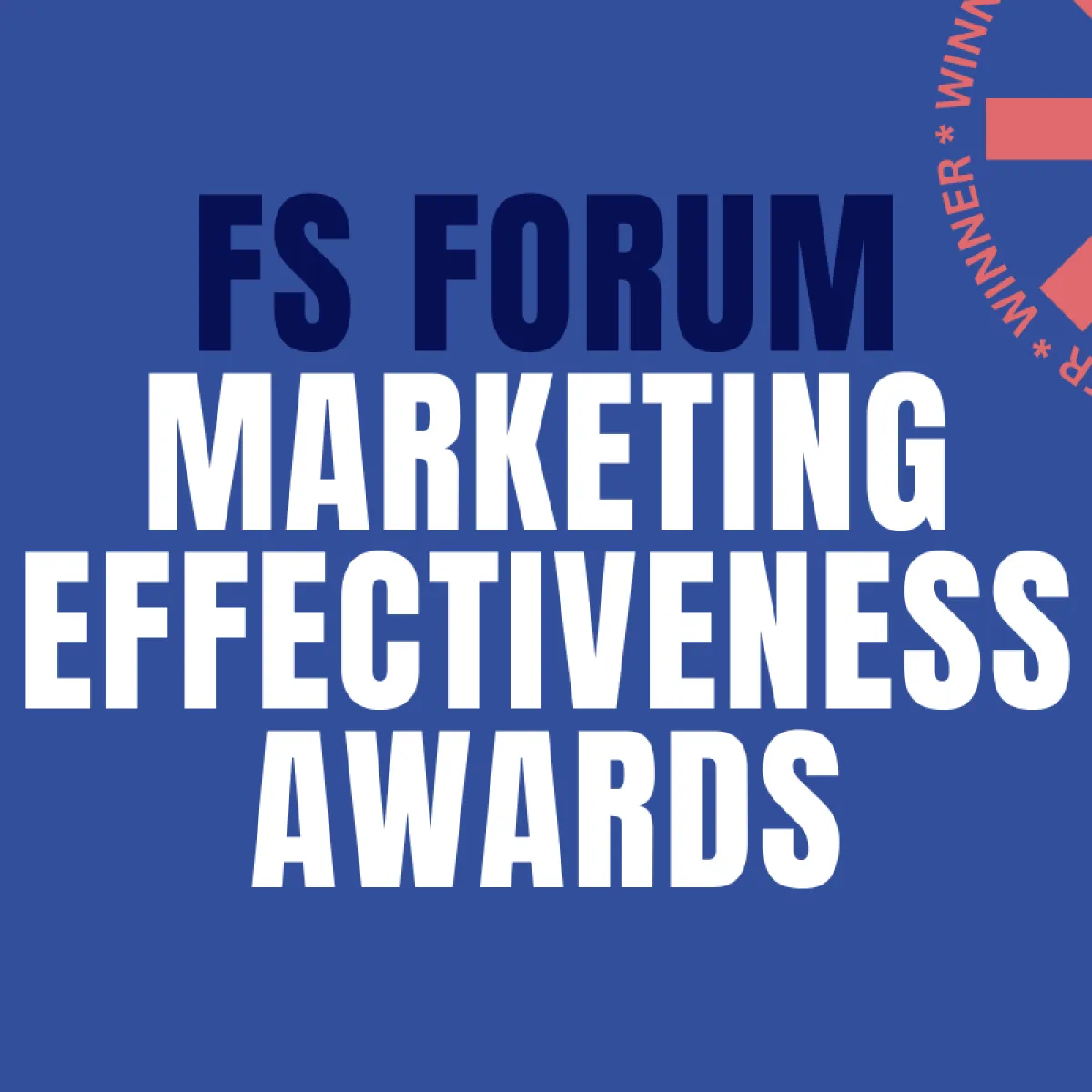This website uses cookies. Learn more
Odey, FCA & Non-financial misconduct
"Even though the #MeToo movement began years ago, it's finally arrived at the FCA and it's front and centre."

(mis)Conduct, Money & Reputation
Podcast Series by Lansons and Katten. Welcome to your monthly dissection of misconduct in financial services, from the rules and regulations - to the reputational fallout when things go wrong. This podcast series is an essential listen for those in asset management (and more broadly financial services) who are responsible for the safeguarding of business and brand; from compliance and corporate affairs to comms and marketing.
Listen via Spotify & Apple Podcasts
Episode Background
E01: Odey, FCA & Non-Financial Misconduct
Back in early June, it looked like we were set for a balmy summer, but then the storm broke. A Financial Times and Tortoise Media investigative feature in the FT Weekend magazine detailing a series of allegations of sexual misconduct by the eponymous hedge fund founder at Odey Asset Management set off a chain of events that will have far-reaching consequences for financial services businesses.
This is a story which is defining the sector’s image in the public eye. But what are the underlying lessons from this, and where do we go from here?
In our first episode for the series, our hosts David and Neil are joined by guest Ciara McBrien, Associate, Financial Markets and Funds at Katten, to explore the increasingly widespread issue of non-financial misconduct in financial services, drawing on cases such as that alleged against Odey Asset Management.
From the FCA’s Fitness and Propriety Handbook to Paul Flowers ‘The Crystal Methodist’ and Jonathan Paul Burrows, the trio navigate the complex path of where regulation and reputation intersect.
Listen via Spotify & Apple Podcasts
**
This podcast contains discussions around sensitive topics, including sexual assault, abuse, and other potentially distressing subjects. Listener discretion is advised. If you or someone you know is affected by any of the issues raised, please consider seeking support from a trusted organisation or professional.
Episode Transcript
David Masters: Hello and welcome to the episode. This is our first episode in a new series for those working in and around financial services, particularly asset and wealth management, where we seek to navigate a path through some of the more complex issues where regulation and reputation intersect. Non-financial misconduct, which is the regulatory term that covers what has been alleged at Odey Asset Management, is one such issue.
My name is David Masters, director and asset management lead at reputation consultancy Lansons.
Neil Robson: I'm Neil Robson. I'm a regulatory compliance partner at US-UK law firm Katten, where we specialise in advising financial market participants on regulatory compliance matters, including FCA rules and regulations.
We're joined today by my colleague Ciara McBrien, who's joining us for the podcast.
Ciara McBrien: Thanks Neil, it’s a pleasure to be here.
David: So to get us started Neil, it's probably worth you giving us a quick rundown of the specific regulatory issues here.
What is non-financial misconduct and why is it of concern to the FCA?
Neil: Well, it's a relatively new concept in the sense that the FCA’s rules on personal conduct within the financial services sector, which traditionally have focused on senior managers previously known as approved persons who were individually approved by the FCA to fulfil certain functions like being a director, a compliance officer, money laundering reporting officer, portfolio manager, someone facing clients in a trading function.
Since the implementation of the senior managers and certification rules, the FCA now only approves the very senior individuals with the firm itself required to certify individuals downstream from the very senior people certified by them as being fit and proper. And the FCA rules in the Fitness and Propriety Handbook, as well as the Code of Conduct for all of the aforementioned persons, they focus on their conduct in the workplace.
Non-financial misconduct is a relatively recent concept where the FCA is looking at the conduct of those individuals outside the workplace and whether it really has an impact on whether they're truly a fit and proper person to conduct their activities in the regulated sector.
David: Okay, so this is quite interesting because you mentioned senior managers, etc. So a few years ago when they introduced the senior manager regime, I think there was a sort of feeling that there was a sort of back door focus on culture taking place, but actually, we've seen recently with comments post-Woodford made by the senior management of the FCA that actually they're much more focused on culture at financial services companies and asset management firms in particular. Is non-financial misconduct part of that or is it something separate?
Neil: I think it is. I mean, the tone from the top being set by management and then obviously disseminated down to the other workers within regulated financial institutions, that's something the FCA has cared about for quite a while.
So yes, non-financial misconduct, looking at the broad range of what people do outside the workplace. Does it impact on their ability to do their job in the office? Does it impact on their reputation in the industry and does it impact actually on the financial services sector’s own reputation across society more generally?
Now what's interesting is that the FCA’s own rules, the fit and proper rules, don't focus on misconduct outside the workplace. And in fact, there's one small section which talks about when a firm is assessing someone for the certification rules, ‘are they fit and proper?’. It looks at, 'what if there's a criminal conviction?'. The examples they give in the rules focus on things like a driving offense or an offense for possession of drugs or alcohol issues, and the guidance from the FCA specifically says it's only really a relevant issue if it impacts on their ability to work in the workplace.
So a couple of examples over recent years, we had one client where a portfolio manager had been caught on a Saturday night with a wrap of drugs and the compliance officer and the general counsel were asking us, what do we do? Is this a non-financial misconduct issue? And we assessed the relevant individual, the individual was interviewed by the GC and the compliance officer. It turned out it was a stupid offense on the individual's 30th birthday. His friends had bought him some as a party treat. It wasn't a regular course of conduct, you know, he wasn't using it in the office. His workplace abilities to do his job were not impacted by this. He recognized he'd been stupid, and so the firm decided, well actually no, he is still fit and proper to do the job.
And that's the sort of balancing act that you have to take, that if he was using drugs in the office, maybe that was a conduct issue or if he'd been dealing drugs outside the workplace, then definitely that would then be non-financial misconduct that the firm would have to assess in terms of the wider picture.
Ciara: And also I think it's a very interesting grey area and non-financial misconduct in the space of work social events.
Neil: You're right, there was a very much a grey zone in terms of how the regulatory authorities, whether the FCA or otherwise, approach what happens outside the workplace when it clearly doesn't impact on their ability to do their job, whoever they are in this scenario.
David: I mean, we could relate that to everyday life, I mean, we've recently had the Kevin Spacey trial. We're seeing things coming out of the Houses of Parliament accusation about conduct of various individuals, various parliamentarians. So clearly this is something where there's a lot of focus as a lot of media attention at the moment.
But if we go back to the history of non-financial misconduct, it's not something we hear a lot about , so have there been many cases? What are the sort of precedents that have been set so far?
Ciara: It's interesting because the FCA have only publicly prohibited seven individuals for non-financial misconduct, and that's various kinds of non-financial misconduct, including sexual assault, possession of indecent images of children. And I think if you look at those seven cases, it's interesting to see that probably the most famous is Jonathan Burrows from 2014, which is still used in a lot of compliance training.
Neil: I use when doing conduct training with clients that it's the prime example and everybody knows the case. But I use it to hammer the message home that, you know, he would get on at a rural East Sussex station where there were no ticket barriers. He'd ride the train all the way into London, get off at Cannon Street and use his oyster card. So he paid whatever the maximum fare was for within London zones, so he saved himself thousands of pounds over a longer period of time. He got caught. He settled actually with Southern trains or whichever other rail network, I forget.
The FCA eventually found out about it because the Evening Standard did an exposé of him and he hadn't told his employers at BlackRock, but they eventually said, well, hold on a minute, clearly you lack honesty and integrity, therefore we have to fire you.
So he lost a job with a salary of £1,000,000 a year plus whatever bonuses he was getting because of some stupid thing he did, which he admitted he knew was wrong. But clearly represented the fact that he lacked integrity. And that's our starting point for all these seven cases of non-financial misconduct. He wasn't doing anything wrong at work. But the FCA said well, hold on a minute, fitness and propriety tests say you must have honesty, integrity and maintain a good reputation. And he clearly didn't.
Ciara: And also the broader similarity that it came to light for the Evening Standard, which is similar to how the Odey case came to the public eye by the Financial Times despite there being allegations previously against him.
Neil: Yeah, very much the case. But what's interesting is that you know six years pass since the Jonathan Paul Burrows case, Blackrock where he was effectively fare dodging and it was the FCA themselves who brought three banning orders into place back in 2020 against three individuals who'd been convicted of criminal offenses. And the FCA came out and said, look, non-financial misconduct, so they really made it a big thing in 2020.
Three very different cases, really outrageous criminal convictions for really horrible offenses. So the first of these cases was a guy called Mark Horsey, who pitched himself as the celebrity adviser, the adviser to the stars. He built up his own financial advisory practice. He actually rented an office at the Wolves Football Club grounds, and they became, in fact, many of the players became his clients.
But he was banned by the FCA for performing any regulated activity function, so effectively banned from the financial services industry because he'd actually set up a webcam, a spy cam, effectively, to record one of his tenants having a shower.
The FCA said, well, because he's the sole director and the adviser to these individuals and he's looking after other people's money, bottom line is he's not fit and proper. So this was a real clear case of non-financial misconduct that would be bringing the financial services sector into disrepute.
And the second one of that trio back in 2020 was even more egregious in some ways. There was a guy called Frank Cochrane, who was the sole director and a shareholder of a financial advice firm. So again, same sort of structure, but he was convicted of sexual assault, somebody who'd worked with him, who he'd spent years manipulating, he had a sexual relationship with a woman, even though she didn't always want to.
So actually the next one was very colourful, I think. The media loved this in the sense that they nicknamed the individual, Paul Flowers, the Crystal Methodist.
David: Which was a fantastic piece of journalism. You know, in our in our world, you have to sometimes put your hand up and say, that's very good. That's very clever. And the Crystal Methodist stuck. And you refer to the Crystal Methodist and everybody knows who you're talking about.
Neil: Indeed. And for those who don't, he was the chairman of the Co-Op Bank, but used his work email and his work phone to book rent boys, to buy drugs, to organise orgies.
David: Yes, and obviously we have direct experience of that here because we [Lansons] represented the Co-Op Bank from the discovery of its rather large black hole through to just a couple of years ago, once it had sort of stabilised as a business. But obviously we were very focused on some of what was going on around him. I remember suddenly out of the blue, we were told that he was doing a News Night interview with Jeremy Paxman, and you're sat there thinking, well, what what's the point of this? There’s nothing to come out, surely, as he said, it's all very colourful, it's all in the public domain, it was actually a complete damp squib of an interview, and I did end up wondering why the BBC had agreed to do it, why Jeremy Paxman had agreed to do it.
But I think it just showed how much that particular incident caught the public imagination. Here was a man who had become the chairman of a household name, one of the best loved banks in Britain with no financial services knowledge or experience. It appeared, as we all saw, when he sort of collapsed, or melted down in front of the Treasury Select Committee, that it was a very strange appointment with the benefit of hindsight and the fact that he was engaged in all this very colourful activity. I think that just reinforced it, but it was also quite problematic for the bank at the time, because clearly you have the substantial black hole, you're trying ultimately to ensure the financial stability that the bank is being reported on fairly and accurately. And then you have this going on in the background, which is always a major distraction, And obviously, from a tabloid point of view, you know, it's a great story and it just kept rolling.
Neil: And at the end of the day, he was actually only convicted of criminal conviction for possession of drugs, not that, you know, the other activities or in any way illegal necessarily. But what the FCA ultimately banned him for was the fact that he wasn't fit and proper. He shouldn't have been the chairman of a bank holding, you know, Mrs. Miggins’ money, your money, my money, or anybody else's money. So that's why he was banned again, because there was so much media attention on him. There was a criminal conviction. He clearly wasn't fit and proper and he was bringing the industry into disrepute.
Ciara: I also think this case is one of the most interesting ones because it brings up the question of whether a criminal conviction alone is enough for a banning order.
David: Yes well I think this was the point I was getting to in what we've heard so far is, you know, all these people have had some form of criminal conviction. Obviously, with Odey, we are in a situation whereby these are allegations which are strenuously denied by Crispin Odey. There has been a court case, but that did not lead to a conviction. He was cleared. I know that there has been some question marks raised about the judge's comments, but that's not really what we can comment on today.
But if there is no criminal conviction against Odey, what are the FCA's powers?
Neil: Well, the reputation point is a key one, because let's be frank, everything we've seen from the F.T. exposé of recent weeks would suggest that Mr. Odey's reputation is now in tatters. And in fact, the F.T. claims that they've published from these now significantly more than a dozen women now 19 dating back to 1985, with the same modus operandi in the sense of how he approached these women, developed a relationship and sort of lunged at them. I think that was one of the phrases that the F.T. used from several of these women. They all seem to follow a same or similar pattern. And there's the old phrase, of course, there's no smoke without fire, although I reiterate, as you did, these are merely allegations at this point, there is no criminal conviction yet that has been found against him, but nonetheless, his reputation is in tatters.
His colleagues clearly were trying to make sure he was now out of the business. And as you and I have been discussing in the past, David, the prime brokers, the banks that were operating with Odey Asset Management, they quite quickly realised that they wanted to be disassociated with a business which had a principal that was dirty in the sort of regulatory sense.
He wasn't deemed fit and proper by the media at that point in time, notwithstanding, the FCA had not yet at that point made any findings against him. So when the first allegations were brought against Crispin Odey, we understand that the Odey Asset Management executive committee decided that they needed to do an investigation. But Ciara, the interesting thing was what happened next.
Ciara: He fired them and then appointed a new executive committee who then brought an investigation against Crispin Odey, and then he sacked the second executive committee, then the third executive committee were then clearly ‘yes men’ because they said he was fit and proper, which from the allegations that have been brought, potentially could raise questions.
Neil: And according to the F.T., there was a significant H.R. file on various complaints against Mr. Odey brought by the receptionists and other women who had worked at Odey Asset Management. And notwithstanding that file which the F.T. suggested, they've not seen the full details of it, but they suggest that it was very clear to staff at Odey Asset Management what Mr. Odey was doing over this period of years.
And I find this quite fascinating that, as Ciara says, the ‘yes men’ who did exactly as Mr. Odey required and others appear not to have done anything; they had their own duties, their own obligations as approved persons or senior managers. They have a duty to tell the FCA of anything they think ‘the FCA ought reasonably to be notified of’. That’s an obligation – that’s a duty.
Now, what's really interesting, and if I go all the way back to 1951, one of the founders of social psychology, a guy called Solomon Asch in the USA, did an experiment to investigate how people's decision-making would be influenced by others in their social group. To do this, he took a group of college students and he asked them to judge the relative lengths of lines drawn on a piece of paper.
What the majority of the students didn't realise was that there were a group of stooges amongst them who'd been primed to give the same answers, but the wrong answers, saying that that particular line clearly must be longer than the other line, and that one there must be the shortest, despite it being absolutely apparent that that was not correct. And what he found, in the face of a false consensus, was that 70% of the students went along with it.
They wanted to be part of the same group in the part of the decision-making team that went with it. So what can a psychology experiment from 1950s America teach us about people in the financial services sector? Well, it would appear that ultimately people keep quiet when they should speak up. And in this scenario where Odey Asset Management, Crispin Odey was the man, it was his business. Lots of people at that business fundamentally had to stay in his back pocket and be good in terms of his perception of them so that they kept quiet. And that would appear to have happened since at least 1985 when the first of the F.T. allegations, the first of the 19 women says that she was assaulted by him. That's decades that people have kept quiet.
And as Ciara says, various executive committees who decided that, well, we need to do an investigation, we have to do the right thing, maybe following their own obligations vis a vis the FCA. He just fired them until he got people who would turn a blind eye. That appears to be what's happened. As we say, these allegations are merely allegations at this point in time. But the fact there's now 19 women who've come forward suggests that there may be more to this than mere allegations.
Ciara: And I think given all that background and the kind of situation of what it is like to bring forward allegations in a professional context, I think it must have been very difficult for these 19 women to come forward. And maybe it's the power of the collective voice that the F.T. brought together all these women, and that's what really struck in the media.
David: Yes, it is very notable, isn't it, that, you know, these weren't whistle-blowers as we talked about whistle-blowers earlier, but these people who have come forward, whistle-blowers after the effect, but they weren't able to blow the whistle whilst they were there, they didn't feel empowered to be able to say anything whilst they were within the business because a number of these people were employees, they are now ex-employees of Odey Asset Management, a number of them business associates. And whistleblowing is a particularly reputationally challenging area because I think instinctively and we've seen this recently with some financial services businesses, there is a tendency to treat whistle-blowers as the enemy, whereas in fact I think, the public do judge businesses by their treatment of whistle-blowers. And I think I think it's really important and I just go back to those reputational things as well, because we were talking about the executive committee, obviously, post the publication of these F.T. articles of these horrendous allegations made by these women in fairly graphic detail in the F.T. as well. You know, and the media sort of circus that ensued. They obviously did manage to remove him from the company, but only after continued coverage.
Neil: Only after it was so public that, frankly there, was no other option.
David: And that's not uncommon, so when you're dealing with these sort of cases from a reputation management point of view, often the original request you get is how do we make this go away? And you have to look at these sort of things on an individual basis, and you look at this and you think, well, this isn't about how do we make this go away. It's if we're going to be optimistic, it's, how do we stop a run on the institution? How do we stop a run on the funds that Odey has, you think of the Co-Op, How do we stop a run on the bank?
Neil: Well, in the case of Odey Asset Management, of course, they didn't. So they shut up the funds, they didn't allow people to take their money out. Bad PR meant that people were desperate to get their money out of Odey Asset Management managed funds. They shut up the funds, several of them have now been transferred to other asset managers, taking the key portfolio manager with them. So investor money is effectively safe, hopefully in the new asset management firm’s hands, but we're still left with Odey Asset Management effectively shutting the stable gate after the horse has bolted.
David: Yeah, I mean the pessimistic view of this asset, the optimistic view was, you know, how do we stop a run? The pessimistic view is how to retain some sort of value, and that has been done. I mean, I think, in terms of in terms of some of the funds have been moved, some investors won't have lost as much money as they would have done had that not happened. And that ultimately is what you're trying to do, you're trying to protect the investor, you're trying to protect the people whose money it is.
But I do I do think that requires, quite a lot of focus, you have to really focus on what you can control, not what you can't control. And I think that, because these sort of stories, they get the kind of a lot of attention, the F.T. leads with them, other people will clearly follow - and that is what happened. And then you get into a situation whereby, how do you take the heat out of the situation? How do you remove the drama and the tension? You can only focus on what you can control and what you can influence.
There are very many different parties involved in this. We've talked about the association risk. We've talked about the banks and the brokerages exits or most of the banks and the brokerage and exiting, not all of them have. I'm aware of one or two that stayed on board. But equally they would say, for the good of the underlying good of those clients, if we're going to move money around, if redemptions are going to be met, we need to transact.
And obviously, the other thing you're trying to do from a reputation management point of view is trying to ensure that everything is reported fair and accurately. When the media interpret events that they're doing so in a way that is reasonable and fair. And I think one of the problems once the board decided to make this decision to exit Odey, was the fact that it's very difficult to control what's going on. And I'm just going to read you this is from the F.T. “Reached by phone at lunchtime on Saturday, Odey confirmed he had been notified of the firm's decision that is, to exit him, but suggested he would fight it. You have to have a willing buyer, willing seller, he said. He did not provide additional comment.”.
That's dynamite because now you have additional - you haven’t reduced the tension because these ‘loose cannon’ comments have been made, this is now spiralling further and further out of control and there's more media. And then you've got other editors and other newspapers saying, well, we really need to be on top of this, there's more and more happening. So it makes it really, really difficult and ultimately, as we've said, it really comes down to, how do you retain value? How do you protect those people, those investors who are innocent of this, who did not know what they were entering into. And that's really where the focus has got to be.
So what’s next? What are the next steps in this? What’s going to happen? Are we going to see a court case? What are the FCA going to do? What are the implications for the fund management industry?
Neil: So I think if we start with Mr. Odey himself, the fact that the F.T. has brought 19 women forward with quite clear allegations of very, very serious sexual assault and other misconduct, I think the likelihood of a criminal case against him is extremely high. I'm not a criminal lawyer, so don't quote me on that, but it seems very, very likely.
For Odey Asset Management, they've exited him from his business now. What's left of the business is going to have to rebrand itself, and I think they're in the process of doing that, or were already doing so. But the likelihood ultimately is that the FCA is going to have to focus on its own concept of what is non-financial misconduct.
Ciara: Yeah, that's completely correct. The FCA intends to provide further guidance on non-financial misconduct, including how non-financial misconduct should be considered within its rules later in 2023. But it's almost difficult to see in some respects how guidance will be able to rectify the fundamental issue that the rules don't work when it comes to non-financial misconduct. The FCA has said that they are going to let Parliament choose to legislate if it wishes to specify that certain offenses should lead to an automatic prohibition from a regulated sector.
Neil: So ultimately, even though the #MeToo movement began some years ago, it's finally arrived at the FCA and it's front and centre. It looks like the FCA rules are going to have to change and that people convicted or even accused potentially of really serious misconduct will definitively not be ‘fit and proper’ and so have to be removed from the financial services sector.
David: Okay. And so we can expect more of this to come, I think.
Neil: And relatively soon. I think Mr. Odey’s activities and the exposure has really brought it forward.
David: Great. So that's all we have time for today. We'll be back next month where we'll be exploring further areas where reputation and regulation intersect in the world of asset and wealth management.
**
Disclaimer: The content in this podcast is for informational purposes only. It does not constitute legal advice and is not intended to establish an attorney-client relationship, nor is it intended to suggest standards of care applicable to attorneys in any given situation. This podcast is considered attorney advertising. Prior results do not guarantee a similar outcome. Any views, opinions or comments made by external guest speakers - are not to be attributed to Katten Muchin Rosenman LLP and/or Katten Muchin Rosenman UK LLP or their individual attorneys/lawyers. All rights reserved.
Stay in the loop with our experts




New Business: to find out how we can help you, contact our dedicated new businesss team consultancy@lansons.com
Careers: we’d love to hear from you, please visit our careers hub











